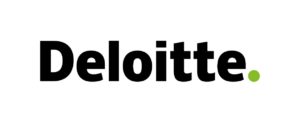
Using Foresight to Explore the Future of Work
Imagining learning in a world without colleges and universitiesDuring the Kroeger Policy Connect workshop on March 1, students and the PPF policy team explored potential outcomes in a scenario where post-secondary education — as currently provided by colleges and universities — no longer exists. Scenarios that stretch the imagination are an effective means to get people to accept and plan for different futures. Participants must work backwards to plan for this new scenario, driving a storytelling process that makes the scenario seem more realistic.
‘Planning in reverse’ requires us to stretch our thinking. To prepare for unexpected circumstances in the future of work, policy-makers will need to do just that. Engaging people who might have the potential to see things differently can help.
Using foresight scenario planning with students within a short time frame (three hours) allowed for quick, structured idea generation. Students’ own experience in the post-secondary system, coupled with their imagination, resulted in some interesting ideas.
What is foresight and why is it useful?
Strategic foresight is the systematic examination of potential threats, opportunities and likely developments at the margins of current thinking and planning. Foresight tools are useful because we can’t always expect to extrapolate from historical trends, especially when planning for issues as complex and dynamic as the future of work.
The changing nature of work will be influenced by a complex web of interacting mega-trends — demographic shifts, technological changes, social and political evolutions, and environmental changes. PPF doesn’t intend to predict the jobs, skills, and employment prospects of the future with precision. To adapt to and benefit from these changes, Canada will need a flexible, precautionary policy approach that can deal with a wide range of scenarios, large-scale changes and previously unimaginable pathways forward.
What did the students expect?
The students in this workshop were neither surprised nor worried about a future where the post-secondary system as it currently exists is completely disrupted and transformed. In fact, the students shared personal experiences in which prospective employers had downplayed the significance of academic credentials as a prerequisite of employment. They seemed comfortable with a future in which post-secondary education is less relevant.
When asked to describe what a future without post-secondary education might look like, and to identify its potential challenges and new opportunities, the students articulated a few outcomes:
- Increased privatization of learning. The students foresaw that young people would turn to private institutions and/or corporations for courses and skills training. Rather than following a fixed curriculum, students would have the flexibility to select courses on an ad hoc basis. They speculated whether increasingly non-linear education pathways would inject a diversity of skillsets and backgrounds into the Canadian workforce.
- Increased emphasis on apprenticeship and ‘on-the-job’ training. The students speculated that employers would be increasingly responsible for providing training and upskilling opportunities for their employees. Rather than finding skills training at educational institutions, young employees would receive practical, job-specific training from their employers.
- Increased significance of K-12 education. The reduced relevance of post-secondary education would require young people to make career decisions at an earlier age. For this reason, participants wondered if there would be increased pressure on K-12 education systems to prepare young people for their future work. This would include more than skills and competency training, but also comprehensive exposure to a broad spectrum of career pathways.
What are the challenges associated with this scenario?
- Unclear career pathways. Students speculated that career trajectories would no longer be clear or linear. For this reason, they imagined the onus might be placed more heavily on the individual to ensure that they acquire the necessary skills and for their training to be successful.
- Increased financial pressure on employers. The students mentioned that not all employers have the means to provide extensive professional development opportunities to employees. In a scenario where employers are the primary providers of education and training, smaller organizations would have difficulty recruiting young talent.
- Unequal access to professional experience and training. The students worried that a stronger emphasis on professional experience as a credential for employment would contribute to systemic inequalities. They explained, for example, that not all Canadians have the means to take unpaid work to gain professional experience.
What are the new opportunities presented in this scenario?
- Increased democratization of learning. The students wondered whether an increased emphasis on continuous learning and on-the-job training would make education more accessible. They believed that this scenario would lower current barriers, including the cost and time commitment of traditional post-secondary education.
- Increased flexibility and opportunities for career pivots. The students were excited by the prospect of increased career flexibility that would accompany the elimination of post-secondary education. They speculated that current education systems pigeonhole workers into one profession or sector. Ad hoc training and courses would provide more flexibility for workers to gain new skills and shift career paths.
As a convener in the policy process, PPF is grateful for the chance to learn from students who participated in the foresight workshop. While the insights generated are not a prediction of the future, they will help inform our own ongoing research and reinforce the value of engaging young people and non-specialists in scenario development and testing.
Thanks to the Kimiya Project Lab and Kroeger College for connecting the Public Policy Forum with students through the Kroeger Policy Connect program.
Brave New Work is a major multi-year initiative by the Public Policy Forum, with the support of the following sponsors and partners:
Thank you to our lead sponsor:
 |
Thank you to our partners:
 |
 |
 |





